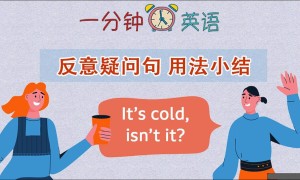英文还有一种特别的句子,自己或说话的人希望"过去"的某件事或某个事实是真的,但事实上那已不是真的,那已不会发生了、那已不是事实,也不可能成为事实了,只是心里的想法,心中的渴望"过去"的某件事情如此,颇有后见之明,有时甚至还带有悔不当初的意味。这种句子则称为与过去事实相反的假设语气。
例如 :
如果我当时有足够的钱,那时就可买一部车
(事实上我当时没有足够的钱)
如果你当时有告诉我这个问题,我那时就可以帮你了
(事实上你当时没告诉我,我那时也没帮到你)
这种句子有特定的说法,有点像公式,必须1个萝卜1个洞,每个洞都填满,每个字都说出来,才能精确完整表达出这个语义。

肯定句
If you had studied harder, you would have passed the exam.
如果你当时多用功,那时就会通过考试了 ( 但事实上你当时没用功)
If it had rained, we could have gotten wet.
如果当时下雨, 我们那时可能就会全身淋湿了 ( 但事实上当时没下雨 )
If I had accepted that promotion, I would have worked in Boston.
如果我当时接受了那个升迁机会,那时就会在波士顿工作了 (但事实上我没接受)
If Peter had known my address, he would have sent me a postcard from Peru.
如果Peter当时知道我的地址,他那时就会从秘鲁寄明信片给我 ( 但事实上他不知道我的地址 )
I would have helped you if you had told me the problem.
我那时候会帮你,如果你当时有告诉我这个问题 ( 但事实上你没告诉我 )
We would have come if we had been invited.
我们当时会来,如果那时有被邀请的话 ( 但事实上我们没有被邀请 )
否定句
If you hadn’t been late, we wouldn’t have missed the train.
如果你当时没有迟到的话, 我们那时候就不会错过火车了 ( 但事实上你迟到了 )
If I hadn’t gone to the party, I wouldn’t have met Jerry.
如果我当时没去派对的话,我那时就不会遇见Jerry了 ( 但事实上我有去派对 )
They wouldn’t have got married if they hadn’t gone to the same university.
他们当时不会结婚,如果他们没上同一所大学的话 (但事实上他们上同一大学 )
If you had taken a taxi, you wouldn’t have been late.
如果你当时搭计程车,你那时就不会迟到了 ( 但事实上你没搭计程车 )
If you have gone to bed early, you wouldn’t have been so tired.
如果你当时早一点睡,那时就不会觉得那么累了 ( 但事实上你没早一点睡 )
Mary could have gone traveling if she hadn’t taken the job.
Mary 那时可能就去旅行了,如果她当时没有接受那个工作的话 ( 但事实上她接受了那个工作 )







